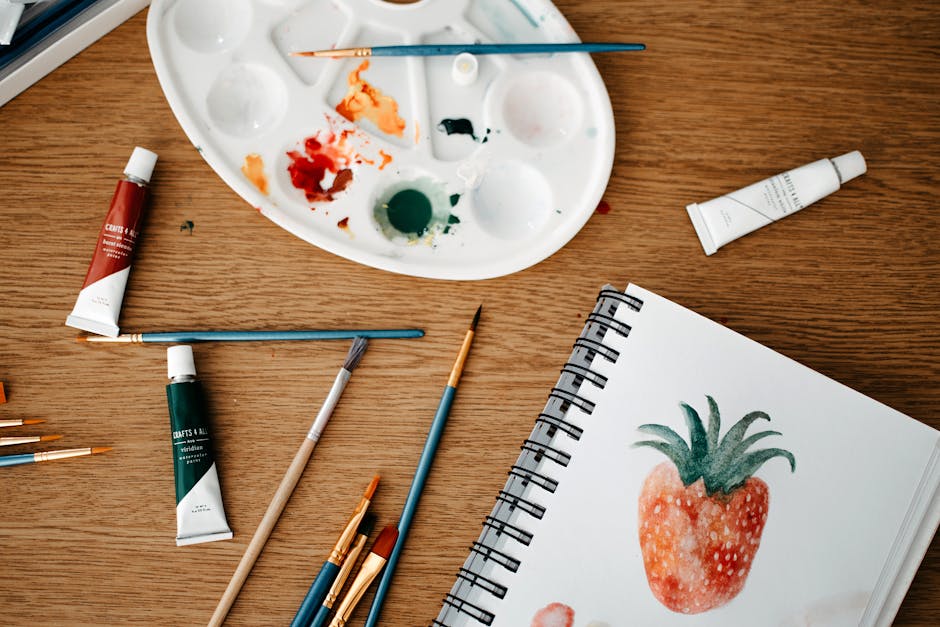The world of hobbies and crafts is a vibrant tapestry of individual passions, offering avenues for creative expression and personal fulfillment. From intricate needlepoint masterpieces to meticulously crafted pottery, these pursuits often involve unique tools and materials. But does every hobby necessitate specialized equipment? The answer isn’t straightforward, and the need for particular gear varies significantly depending on the craft.
A significant factor in the equipment question is the complexity of the craft. Simple hobbies, like collecting stamps or birdwatching, often demand little beyond a few basic supplies. Conversely, more intricate pursuits, such as jewellery making or model building, frequently involve a substantial array of specialized tools. The nature of the desired outcome plays a key role in this decision.
Consider knitting, a craft that can be enjoyed with just needles and yarn. Beginner projects can be tackled with basic tools, but advanced techniques and intricate designs often require specific types of needles, notions, and even specialized yarn. This highlights a crucial point: the level of expertise sought impacts the required equipment.
Many crafts rely on readily available materials, which might seem to negate the need for specialized tools. For example, painting with watercolors can be done with simple brushes and watercolor paints, yet specialized brushes tailored to different techniques or high-quality watercolor paper can significantly enhance the artistic outcome. This demonstrates a nuanced perspective: while basic tools might suffice, specialized equipment can yield superior results.
Conversely, certain crafts, such as calligraphy or leatherworking, require specific tools for consistent quality. Calligraphy demands precise nibs and appropriate paper, ensuring the distinctive strokes that characterize the art form. Leatherworking involves specialized tools for cutting, shaping, and stitching leather. These examples underscore how specific tools are sometimes indispensable for achieving a desired aesthetic or quality.
Crafting with recycled materials provides another interesting perspective. This approach often embraces repurposed items, suggesting a minimal requirement for specialized tools. However, some creative approaches to upcycling necessitate specific tools, like specialized cutting equipment for preparing wood or metal, thus demonstrating a wide range of needs.
The cost associated with specialized equipment can also influence the decision. Some hobbies can be pursued with budget-friendly materials and tools. For example, drawing or painting with basic supplies remains accessible to many. However, hobbies like model building or woodworking often demand significant investments in specialized tools and materials. This financial constraint is a significant factor, especially for those just beginning to explore a craft.
The desired level of precision in a project also influences equipment needs. A simple, informal card-making venture may require little beyond paper and glue. However, for more precise, elaborate card-making projects or for decorative projects, specialized tools for embellishing or intricate cutting could be crucial.
Furthermore, the artistic intent behind the craft has a profound impact on the equipment’s importance. If the aim is simply to create a functional object, specialized equipment might not be essential. However, for a pursuit driven by aesthetic appreciation, specialized tools might be integral for achieving the desired artistic effect.
The environmental impact of the equipment can be a growing concern for many hobbyists. Consider that the manufacturing process and the eventual disposal of specialized tools might have environmental repercussions. Choosing sustainable and ethically sourced materials and tools is an emerging trend in many hobbies. This growing awareness highlights an additional consideration for craft enthusiasts.
In conclusion, the necessity of specialized equipment in hobbies and crafts is not a binary concept. The complexity of the craft, the desired level of expertise, the cost, and the environmental impact are all crucial factors. While basic supplies often suffice for introductory levels, specialized equipment can often lead to superior outcomes and enhanced creativity. There is no single answer to the question of equipment necessity. Ultimately, the choice depends on individual preferences, skill levels, and the specific demands of each hobby or craft. Exploring various possibilities, starting with basic tools, and then gradually acquiring specialized ones can be a rewarding journey that reflects one’s artistic growth and personal development.
